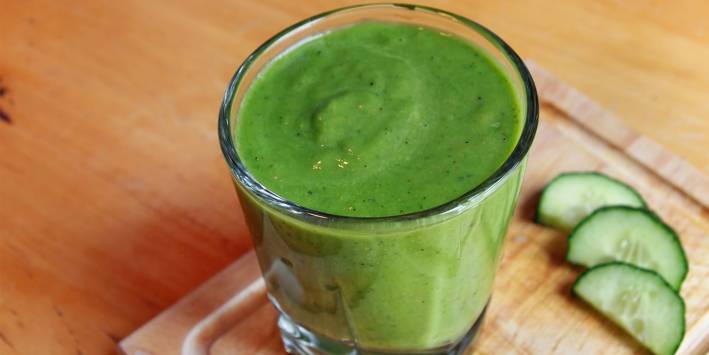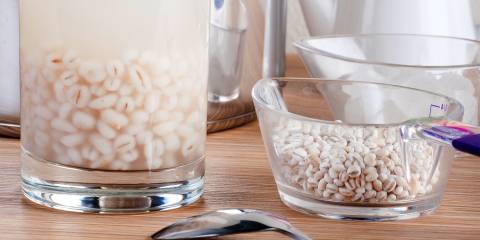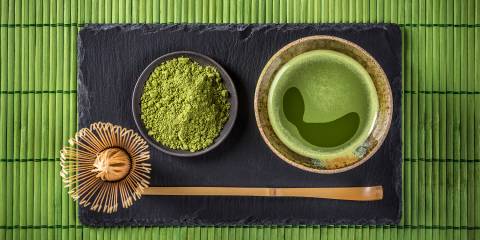We all know fruit and vegetables are good for us. They help lower our risk for obesity, heart disease, and Type 2 diabetes. Yet, according to the US Centers for Disease Control and Prevention, only about one in every 10 Americans eats enough of them. If you’re interested in optimal health, that’s a lot of missed opportunities!
Maybe you always intend to eat more fruit and veggies, but your busy schedule stands in the way. Eating whole foods is ideal, but if you’re falling short on the recommended five to nine servings, drinking a couple of servings might work well for you.
Way Beyond V8
When you’re making a green drink, start with a base of dark green, leafy veggies. Think of spinach, kale, collards, and bok choy as your go-to powerhouses. They’re rich in fiber, iron, magnesium, potassium, and calcium. They also supply the B vitamin folate, which contributes to cell repair and heart health, and vitamin K, which can help prevent osteoporosis and decrease the risk of inflammatory diseases.
Mix raw ingredients in a blender, as opposed to a juicer. This way, the final product retains more fiber, helping you feel full longer and doing a better job of balancing blood sugar levels.
You can make green drinks by mixing in a blender, for 1 to 2 minutes, the following ingredients: 1 or 2 handfuls of leafy greens, 2 cups of coarsely chopped fruits and/or vegetables, and about 1 1⁄2 cups of liquid such as water, nut milks, or coconut water. Add powdered greens to incorporate superfoods into your drink. Here are some high-impact ingredients to try.
Powdered Greens for Your Next Smoothie
-
Spirulina
A blue-green algae, spirulina contains protein and carotenoids, antioxidants needed for cellular health. High in gamma linolenic acid and potassium, spirulina helps stabilize blood sugar levels, reduce cholesterol, and strengthen immunity.
-
Wheat & Barley Grasses
Research suggests that these grasses can improve symptoms of fibromyalgia and rheumatoid arthritis. Humans can’t digest whole grasses, but these green foods are available as juice and powdered extracts.
Wheatgrass juice is 70 percent chlorophyll, contains 92 minerals, and is packed with vitamins B, C, E, and K. Because it has a unique and potent flavor, most enthusiasts prefer to take it as a powdered supplement—the perfect way to boost the nutritional value of any green drink.
Be aware that these grasses may cause a reaction in those with gluten allergies or sensitivities.
-
Matcha Green Tea
This green tea contains a high concentration of L-theanine, a stress-reducing amino acid that promotes brain health and helps regulate mood and alertness.
-
Beets
This root vegetable adds sweetness to a drink. Its nutrients can improve blood flow, lower blood pressure, boost stami-na, and enhance cardiovascular health.
-
Superfruits
Sure they’re sweet, but strawberries and blueberries also contain anthocyanins—compounds that lower blood pressure and increase the elasticity of blood vessels.





